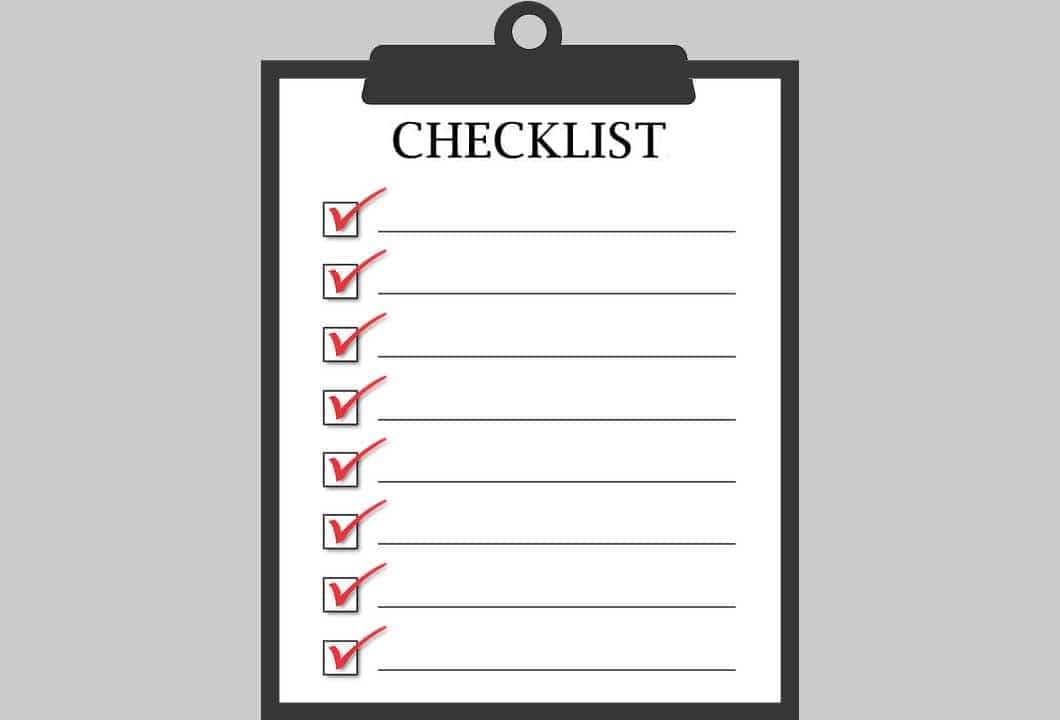
How Color Helps Sell Your Home
How Color Helps Sell Your Home Yes! Just like curb appeal matters, the colors of your home can and will influence buyers. With that in mind, we explore which colors tend to appeal to the masses. The color scheme of your home, from the outside in, sets the tone. It's like going to see a theatre play and seeing an intricately crafted and appropriately painted set for the production. It can immediately intrigue you–before the play has begun and even if you know few details about the play. When it comes to color, be sure to consider the location. A peach-pink home in a retirement community might be okay, but that same color in an upscale, urban city may be unappealing to younger city dwellers. The outside of your home is one of the largest areas potential buyers will see. So make your decision carefully and be sure to have a professional paint job done. If you choose white for the exterior, your home is likely to appeal to the masses, according to one study that indicated upwards of 40 percent of people liked white homes. The great thing about a white home is you have plenty of options to make the home stand out by using an accent color for the trim. The downside is that white gets dirty very fast and shows it more than other colors. So before you list your home, make sure that you have a fresh coat of paint applied or pressure wash the exterior to bring back that newly painted look. Also take into consideration the color of other homes on the block. Typically, white will not look out of place. However, if you had a purple home on a block where the homes are mostly beige and neutral colors, you'll get noticed but won't likely get the kind of attention you want. Beige with neutral-colored trim is another popular color scheme. Both beige and white are safe exterior colors. They don't turn buyers off. There's also been a trend to paint just the front door a deep, rich color like red. This may not be appealing to all. However, buyers would tend to overlook it because it's a simple change as well as one that can easily and cheaply be changed to the new buyer’s choice. As long as the colors look good together, this wouldn't necessarily turn buyers away. The paint inside your home is equally important. In fact, one good tip for sellers is that if they can do nothing else, they should get some fresh paint up on the walls. The new paint helps showcase the home and gives it a new-home feel. There are a wide variety of interior colors. Don't feel like you have to go with only beige. You can be a little more daring, using bold accent colors. Just make sure the paint colors you choose don't give a dark, closed-in feeling. Aim to create comfort, a sense of calmness, relaxation, and a place where family can unwind. Earth-tone colors convey this very well. For a more chic and sophisticated look, interior designers often choose from the grey palette. A dark grey color can create a bold statement and attract the eye to a particular area. Whatever colors you choose, remember that your aim is to appeal to the masses. Test the colors out first. Get opinions from the experts. Your real estate agent has likely been in hundreds of homes and can offer you some very good guidance.

5 Things that Can Hold Up Your Home Purchase and How to Get Ahead of Them Now
I was talking to a friend recently who told me her daughter wanted to buy her first home. She was tired of renting but worried that having a mortgage would mean she couldn't afford to do anything else. I could totally relate. For most people, deciding to buy a house is a huge decision. And when home prices and mortgage rates are high, it can be daunting. I know from experience. When we were in the market for our first home, the economy was uncertain. And so were we. Owning a home was just one of our priorities. We also like to travel, entertain, and give to charity. These things bring joy to our lives. Would having a mortgage mean we had to give them up? Were we ready to? It quickly became clear that buying a house was a big financial decision, and there was a lot more to consider. That's why when first-time buyers come to me with questions, I suggest they do these five things before stepping into that first open house. 1. Decide what you can afford, financially and personally. When it comes to affordability, the price of a house is one thing; how making a monthly mortgage payment and maintaining a home will impact your life is another. So, the first thing you need to do is prepare a personal budget. For instance, we had to ask ourselves, how much of our monthly budget did we want our mortgage to take up? Could we carve out enough to cover the ongoing costs like real estate taxes, homeowners' insurance, and maintenance? What could we comfortably add to our current budget and still enjoy the other things in our life? I understand it's not easy to find extra space in your budget when the cost of groceries keeps going up, student loan payments are due again, and other debts may be a factor. You need to take a detailed look at all your current expenses and decide what trade-offs you'd be willing to make to cover the added costs of owning a home. Then look at the big picture. How much debt do you already have, and how much more can you take on? A general industry rule of thumb that says no more than 28% of your gross income should go toward home debt; and no more than 36% toward total debt. Can you stay within that? Once you've decided how much of a mortgage payment you can handle, talk to a lender and get pre-approved. A lender will look at the financial details—assets, income, debt ratio, and more—and help you with a number. You might be surprised that the bank says you can afford more house than you thought. I was. But don't be lured into taking on a bigger mortgage—and bigger mortgage payment—than you want. It's not just about money, but your overall quality of life. Stick with your priorities. 2. Prepare for 20% down — but know your options. If you haven't already, start saving for a down payment now. The ideal is to put 20% down. With median home prices just over $400,000, according to the National Association of Realtors, this can be upwards of $80,000, depending on where you live. That's a big number, and it can take time to save what you need. That's okay — having a budget and a plan can help you get there. In general, the more you put down, the easier it will be to qualify for a loan and the better interest rate you'll get. Plus, with a 20% down payment, you can avoid Private Mortgage Insurance (PMI). PMI is insurance the bank charges you to protect themselves (not you) if you cannot make your mortgage payment. If you fall short of the 20% down payment, this cost will be added to your monthly payment. Then, you'll pay PMI until the loan to value of your home reaches 80%. With a new appraisal, you might then be able to drop PMI. Also, other types of loans, such as FHA and VA, don't require such a high down payment. Your lender can help you explore and understand your options. 3. Be clear about your mortgage choices. When it comes to a mortgage, it's important to dive into the details. For instance, a fixed-rate mortgage is more stable and predictable. You'll generally have the same payment over the life of the loan. However, if taxes and insurance are included, your payment could go up—or down—which can take people by surprise. An adjustable-rate mortgage may catch your attention because it initially offers a lower interest rate for a while, say five years. But then it resets. You may think, "Great, I plan to sell before then, or refinance." But I always caution that you be willing to take on the risk that interest rates could rise before you can follow through with your plan. You may also have heard about mortgage buydowns. This means pre-paying upfront to reduce your interest rate over a set period. If you have more cash on hand, it could save you significantly over time. No matter which type of mortgage you choose, get the specifics from your lender. Read the fine print, and know what it means for your current and future payments. 4. Get your credit in shape. It's always wise to know your credit score. It's genius when you're in the market for a home loan. The better your score, the better loan deal you'll likely be able to negotiate. If your score needs a boost, pay your bills on time and keep your credit balances low. And it's best not to open any other credit accounts while shopping for a loan. Each inquiry could be a hit on your score. If unsure where you stand, request a free credit score from the three major credit agencies. 5. Take steps to protect yourself and your future home. Owning a home is both a financial and an emotional responsibility. The thought of losing it can be scary if something unexpected should happen like a fire, or if you were to lose your home due to a health issue or job loss. So prepare in advance. Ensure you have an emergency fund to cover three to six months of essential expenses, including your mortgage and other home-related costs. Compare home insurance policies ahead of time and know that they will likely increase in the future. How quickly and by how much depends on where in the country you live. The impact of more severe weather in greater frequency is pushing insurers to raise premiums countrywide. Consider both short- and long-term disability insurance. See what your employer offers, and if that's not enough to cover your expenses, look at private policies to supplement it. It may be an extra cost now, but it can keep you from losing sleep—and possibly your home—in the future. Lastly, make sure you have adequate health and dental care coverage. Overdue debt for medical bills can snowball quickly. The bottom line is that buying a home is both a financial and a life choice. If you've taken these five steps and are ready, buying your first home can be a smart way to help build future wealth. But to me, it's also personal. If owning a home will be a financial burden, stop and think. If it will bring you joy and fulfillment, go for it. Related Blogs How Much Mortgage Can You Afford? Tips for Negotiating with Sellers

How Our Team Helps Buyers Evaluate Homes
In the intricate dance of buying a home, few partners are as indispensable as a seasoned real estate agent. These professionals bring a wealth of expertise to the table, guiding buyers through the labyrinth of property evaluation with finesse and insight. From deciphering listings to uncovering hidden gems, here's how real estate agents play a pivotal role in helping buyers evaluate homes. Navigating Listings with Precision: The journey to finding the perfect home often begins with sifting through countless listings. Real estate agents act as navigators in this sea of information, helping buyers filter options based on their preferences, budget, and location. Armed with an understanding of the buyer's needs, agents can swiftly narrow down choices, saving valuable time and energy. Unveiling Hidden Opportunities: Beyond what meets the eye lies a realm of hidden opportunities. Real estate agents possess a keen eye for spotting potential in properties that may initially go unnoticed by buyers. Whether it's a diamond in the rough awaiting renovation or a neighborhood on the brink of revitalization, agents can unveil these hidden gems, opening doors to untapped possibilities. Expert Evaluation and Analysis: Evaluating a home goes beyond its curb appeal and superficial charm. Real estate agents bring a trained eye and analytical prowess to the table, dissecting every aspect of a property to assess its true value. From scrutinizing structural integrity to evaluating market trends, agents provide buyers with comprehensive insights, empowering them to make informed decisions. Negotiation Mastery: Negotiating the terms of a home purchase is where the expertise of a real estate agent truly shines. Agents leverage their negotiation skills and market knowledge to advocate for their clients, securing the best possible deal. Whether it's negotiating price, contingencies, or repairs, agents work tirelessly to ensure their buyers' interests are protected throughout the process. Guidance Every Step of the Way: Buying a home can be overwhelming, especially for first-time buyers. Real estate agents serve as trusted guides, offering support and guidance at every turn. From explaining complex legal jargon to coordinating inspections and paperwork, agents streamline the buying process, alleviating stress and uncertainty for their clients. Post-Purchase Support: Even after the ink has dried on the closing papers, real estate agents continue to be a valuable resource for buyers. Whether it's recommending reputable contractors for renovations or providing insights on neighborhood amenities, agents remain committed to ensuring their clients' satisfaction long after they've settled into their new homes. In conclusion, the role of a real estate agent extends far beyond simply facilitating transactions. They are invaluable partners in the home-buying journey, offering expertise, insight, and support every step of the way. From navigating listings to negotiating deals and beyond, real estate agents play a crucial role in helping buyers evaluate homes and find their perfect match. We Make It Happen, You Make It HOME! Related Blogs What You Should Know About Home Inspections Common Terms - Earnest Money and Down Payment, what's the difference?
Categories
Recent Posts










